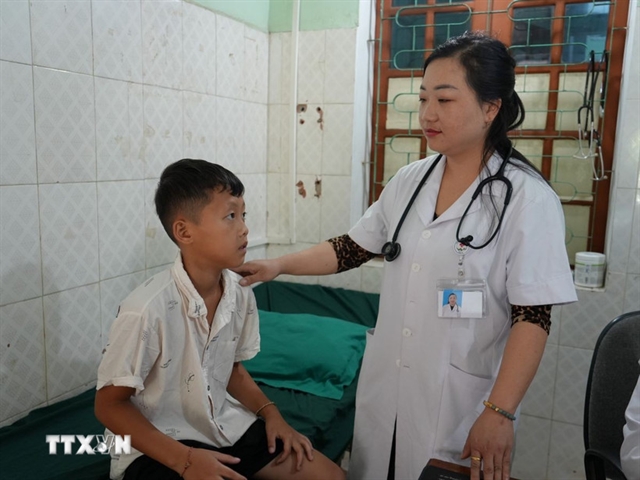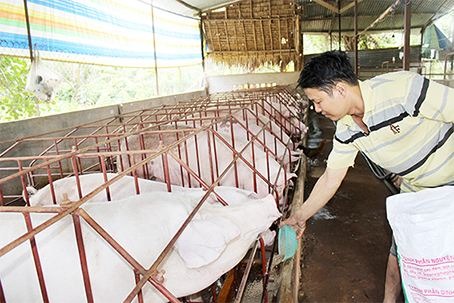 Society
Society


|
| A pig farm in Đồng Nai Province’s Cẩm Mỹ District. — Photo dongnai.gov.vn |
ĐỒNG NAI — The south-eastern province of Đồng Nai, the country’s largest pig producer, is taking measures to repopulate its pig herds that were decimated by Africa swine fever.
The province saw its first case of the disease in April and a subsequent epidemic reduced the pig population by 48 per cent, according to its Department of Agriculture and Rural Development.
The province now has 1.4 million pigs, with breeding companies accounting for 86 per cent of them and farmers for the rest.
The department has asked the people’s committees of districts and Biên Hòa City and other relevant agencies to support pig breeders in repopulating their herds.
It called on local authorities to assess breeding establishments to ensure they meet criteria like relocating outside residential areas to areas that have been declared free of the disease and meeting the national bio-security standards for pig farming.
Those meeting the criteria will receive help in tying up with companies to breed animals, be taught breeding techniques and helped with legal procedures for rebuilding their herds.
Huỳnh Thành Vinh, director of the department, said when the ASF outbreak occurred, the province did not encourage breeding establishments to rebuild their herds.
The province has now basically contained the disease, he said.
It has more than 600 pig farming establishments that have been issued a certificate of disease safety and adopted bio-security, he added.
Many cities and provinces around the country, especially HCM City, depend on Đồng Nai for pork supply.
To ensure adequate supply for the coming Tết (Lunar New Year) festival, the department has worked with the province’s Animal Husbandry Association, animal farming companies, animal feed companies, and breeders to discuss measures for repopulating the province’s pig herd.
As of October, the provincial People’s Committee has granted VNĐ800 billion (US$34.6 million) to districts and Biên Hòa City to support pig owners whose animals were culled because of the disease. — VNS




